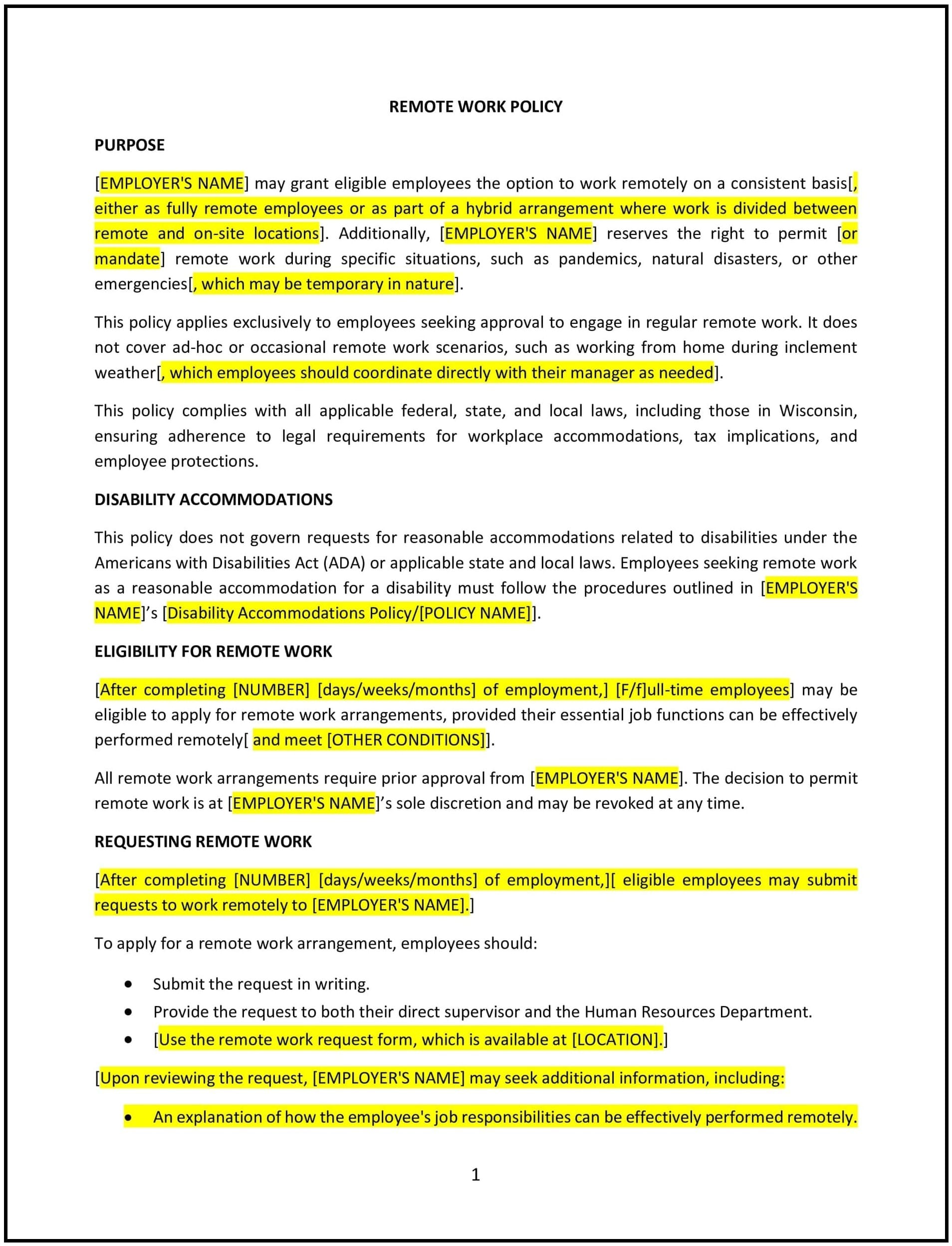Got contracts to review? While you're here for policies, let Cobrief make contract review effortless—start your free review now.

Customize this template for free
Remote work policy (Wisconsin)
In Wisconsin, a remote work policy provides clear guidelines for employees who work from home or another remote location. This policy ensures productivity, accountability, and supports compliance with applicable state and federal labor laws while supporting flexible work arrangements. By adopting a remote work policy, businesses can enhance employee satisfaction and accommodate modern workplace trends.
The policy outlines eligibility criteria, expectations for remote work arrangements, and the responsibilities of both employees and employers.
How to use this remote work policy (Wisconsin)
- Define eligibility: Clearly specify which roles or employees are eligible for remote work and outline the approval process.
- Establish expectations: Communicate productivity standards, availability requirements, and communication protocols for remote employees.
- Address equipment and technology: Specify what equipment or technology will be provided by the company and what the employee is responsible for maintaining.
- Ensure compliance: Align the policy with Wisconsin labor laws, including overtime and recordkeeping requirements for non-exempt employees.
- Set safety guidelines: Outline expectations for maintaining a safe and secure home office environment and reporting any work-related incidents.
Benefits of using a remote work policy (Wisconsin)
- Supports flexibility: Accommodates employees' needs for work-life balance while maintaining business efficiency.
- Improves productivity: Provides clear guidelines and expectations for remote employees, helping them stay focused and accountable.
- Reduces overhead costs: Allows businesses to save on office space and utilities by enabling remote work arrangements.
- Enhances employee satisfaction: Demonstrates trust and adaptability, leading to higher morale and retention rates.
- Supports compliance: Ensures that remote work arrangements align with Wisconsin labor laws and industry best practices.
Tips for using a remote work policy (Wisconsin)
- Communicate the policy effectively: Ensure all employees understand the guidelines, expectations, and responsibilities outlined in the policy.
- Provide training: Offer training for managers on how to supervise remote employees effectively and ensure consistent communication.
- Review regularly: Periodically reassess the policy to address changes in business needs, technology, or state and federal laws.
- Address security concerns: Include cybersecurity guidelines to protect sensitive company information and ensure remote workstations are secure.
- Monitor performance: Set measurable goals and regular check-ins to track productivity and address any concerns proactively.